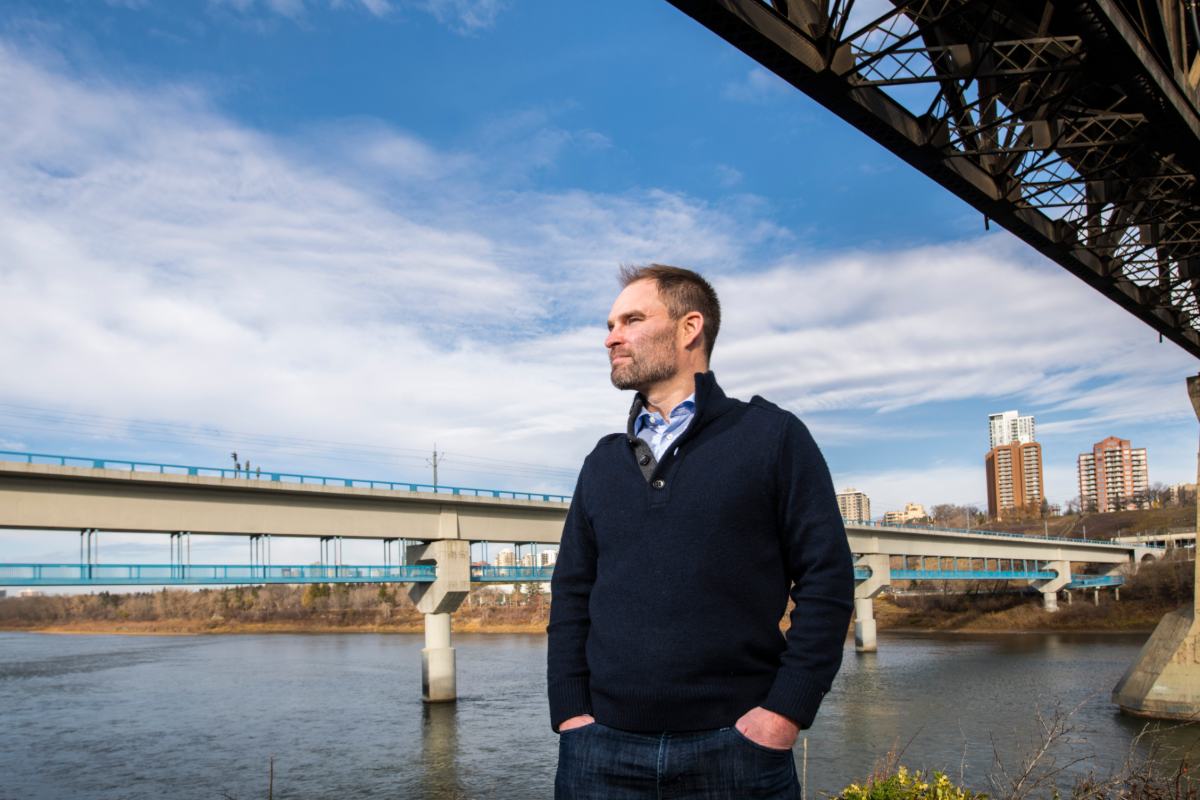
Jeff Birchall, assistant professor in the Department of Earth and Atmospheric Sciences, manages the Climate Adaptation and Resilience Lab in the School of Urban and Regional Planning-and will now lead a new, international network of scientists focused on building climate change resilience. Photo credit: John Ulan
A new, international network of scientists focused on building climate change resilience will be led by the University of Alberta's Jeff Birchall.
"Local knowledge is key when designing and implementing local actions around adaptation and resilience," said Birchall, assistant professor in the Department of Earth and Atmospheric Sciences, who manages the Climate Adaptation and Resilience Lab in the School of Urban and Regional Planning. "The goal of this network is to explore how communities confront climate change and how they seek to adapt to emerging challenges arising from increases in temperature and more extreme weather events."
Under the leadership of Birchall, 27 researchers from a total of 19 different universities from eight countries will come together to tackle some of the pressing questions around local-scale planning, governance structures, and processes around climate adaptation strategies.
The network was formed last month at an international meeting of the Council of UArctic in Stockholm. UArctic is a cooperative network of universities, colleges, research institutes, and other organizations concerned with education and research in and about the North. The University of Alberta, represented by UAlberta North, is an active member of UArctic and participates in six other UArctic thematic networks. UAlberta North is providing initial funding support for the inaugural activities of this new thematic network.
"The formation of this thematic network is timely as local government decision-makers face a pressing need to develop adaptation strategies that minimize the risks arising from climate change," said Anita Dey Nuttall, associate director of UAlberta North. "It will build partnerships with community, local, and regional leaders, contribute to policy development and implementation, and identify opportunities for enhancing community resilience."
Local-scale impact
"My work explores local scale climate stressors (or impacts) and the decision dynamics around climate change adaptation policy/ planning and action implementation," said Birchall whose northern research includes case studies in Yukon and Alaska.
This network connects researchers with an eye on policy and governance, who are working with northern communities from across the Arctic, and are concerned with processes of adaptation and environmental resilience. The communities range in size from large urban centres to small, isolated populations, with a special focus on Indigenous forms of community planning for climate resilience.
"In the battle against climate change, it is very important to engage at both local and global levels and, in particular, to involve local stakeholders in research, finding the solutions and innovations that would help them locally, and, in the end, globally. Therefore, I am very pleased to welcome a new UArctic Thematic Network on Local-Scale Planning, Climate Change, and Resilience, led by Jeff Birchall, said Kirsi Latola, director of thematic networks at UArctic. "Capacity building as a part of the activities of this thematic network will be key to supporting local and Indigenous peoples resilience and adaptation-the importance of which cannot be highlighted enough."
This is the first UArctic Thematic Network to be led out of the University of Alberta.